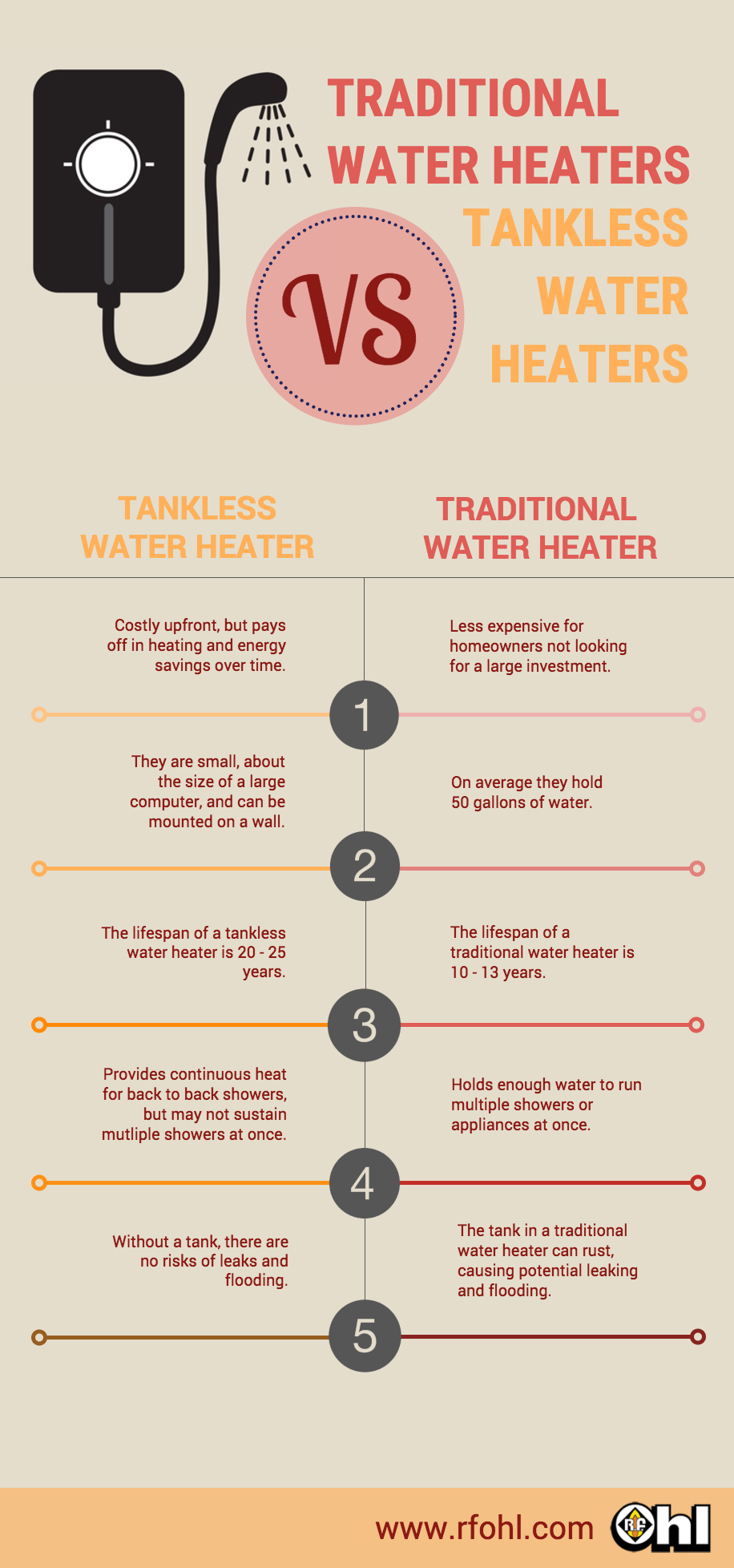
Are Tankless Water Heaters a Worthwhile Investment?
Tankless water heaters excel in providing hot water on demand and quick recovery times, while heat pump water heaters offer energy-efficient performance and continuous hot water supply when properly sized. Consider your specific hot water needs and priorities when making a decision between these two options.

Heat Pump Water Heaters Ongaro and Sons
Instead of using electricity to create heat, it pulls heat from the surrounding air. Heat pump water heaters are three times more energy efficient than electric tank water heaters, according to the Department of Energy. This increased efficiency translates into substantial long-term cost savings on utility bills.

Heat Pump vs. Tankless Water Heaters Pros & Cons Attainable Home
Similar to the heat pump water heater, a tankless water heater has a great return on investment. Studies show it can save up to 22 percent on electricity bills. Additionally, there is a tax credit worth 10 percent of the purchase and installation costs of a tankless hot water heater. They also have longer warranties, which can reduce your costs.

Conventional Storage Vs. Tankless Water Heaters, Which Is Better?
But heat pump water heaters are eligible for incentives that can significantly reduce the cost. The Energy Efficient Home Improvement Credit (aka the heat pump tax credit) reduces your federal tax liability by 30% of your heat pump water heater installation costs, up to $2,000. Tankless gas water heaters can cost anywhere from $800 to $2,000.

Tankless Water Heaters All The Pros And Cons So You Can Decide!
The longevity of your water heater is another vital aspect to consider. Tankless water heaters boast a longer lifespan, typically lasting between 15 and 20 years with proper maintenance. Heat pump water heaters, while offering a slight lifespan advantage over traditional models, generally last 10 to 15 years, somewhat shorter than their.

Tank vs Tankless Water Heaters Which Type is Best for You?
Energy Savings Of A Heat Pump Water Heater. A heat pump water heater can reduce total energy consumption in your household by up to 60 percent over the course of a year. That yearly energy efficiency target is achieved because a heat pump water heater helps reduce your household's power load by about 90 percent during peak hours.
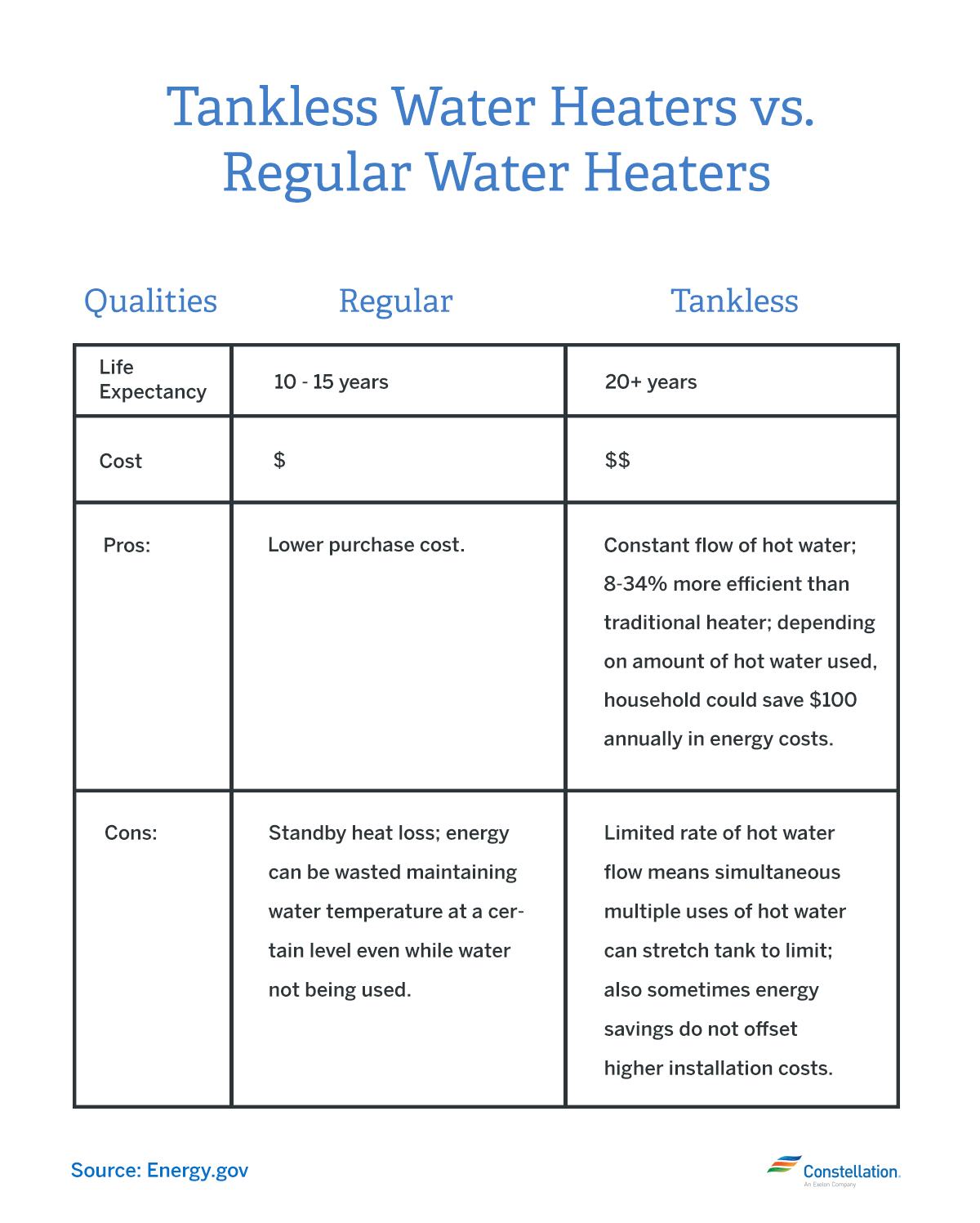
Tankless vs. Traditional Water Heaters Which is More Energy Efficient?
Heat pump water heaters mandate a greater amount of room due to their tank-based design. Tankless units, in contrast, offer space efficiency, capable of being mounted almost seamlessly on a wall. New plumbing, which may be pivotal for tankless heater installation, ought to be factored into the project scope.

HeatPumpWater_Costs_Versus_Electricmin2 R&R Heating & Air Conditioning
Tankless water heaters, also known as demand-type or instantaneous water heaters, provide hot water only as it is needed, eliminating standby heat loss. Lasts about 20 years. 8%-34% more efficient than storage water heaters. Could save $100 or more annually with an ENERGY STAR qualified tankless water heater. Have lower operating costs.
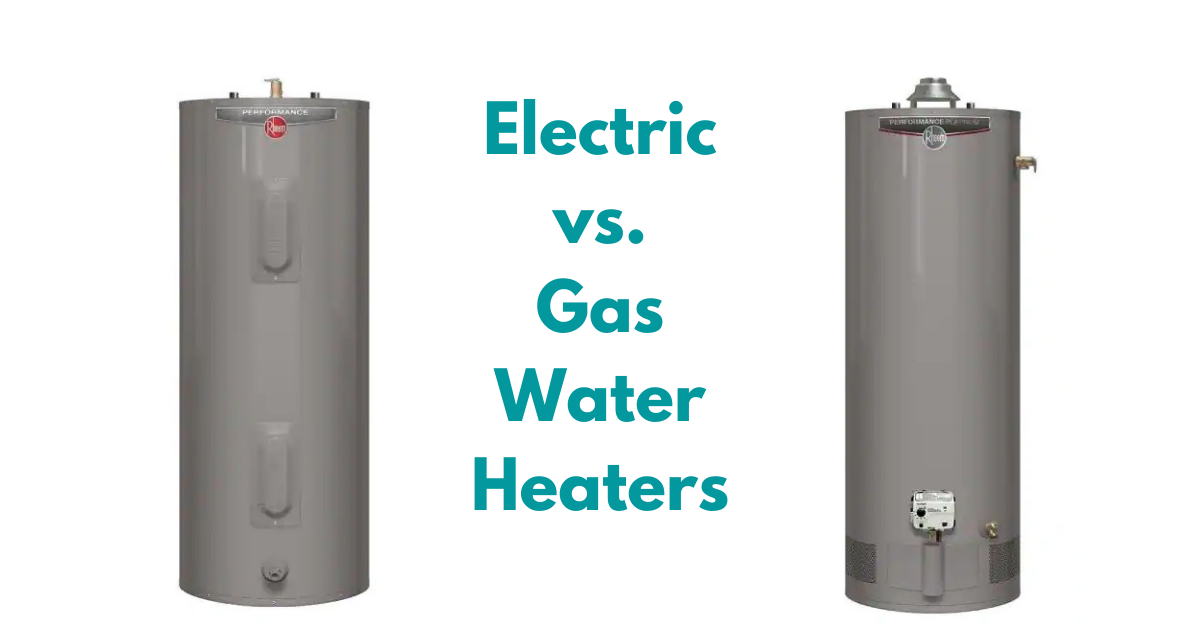
Electric vs. Gas Water Heaters Griff Electric
The unit. The typical cost of an electric tankless water heater that supplies an entire house is $450 to $1,500. For a gas unit, expect to pay from $500 to $2,000. An HPWH costs $1,200 to $2,500 for an electric water heater and $1,400 to $3,000 for gas.

Condensing vs NonCondensing Tankless Water Heaters Tankless Club
1. Smaller Footprint: Tankless water heaters have a compact design and do not require a storage tank, allowing them to take up less space in your home. 2. Longer Lifespan: Tankless units are built to last, often with a lifespan of 15-20 years when properly maintained.

Benefits Of A Heat Pump Water Heater vs. Electric
Heat pump heaters offer excellent energy efficiency but are more expensive and have a lower flow rate than tankless ones. On the other hand, tankless water heaters provide hot water on demand without needing tanks - making them much more space-efficient - yet require little maintenance and have a long lifespan.

Tankless vs Tank Water Heater Pros and Cons YouTube
More Expensive Water Heating Option. Tankless water heaters cost between $1,300 and $3,700 on average. While this is only $100 to $200 more expensive compared to your typical heat pump water heater, tankless water heaters do not come with a 30% federal tax credit, so you'll need to pay in full for this installation.
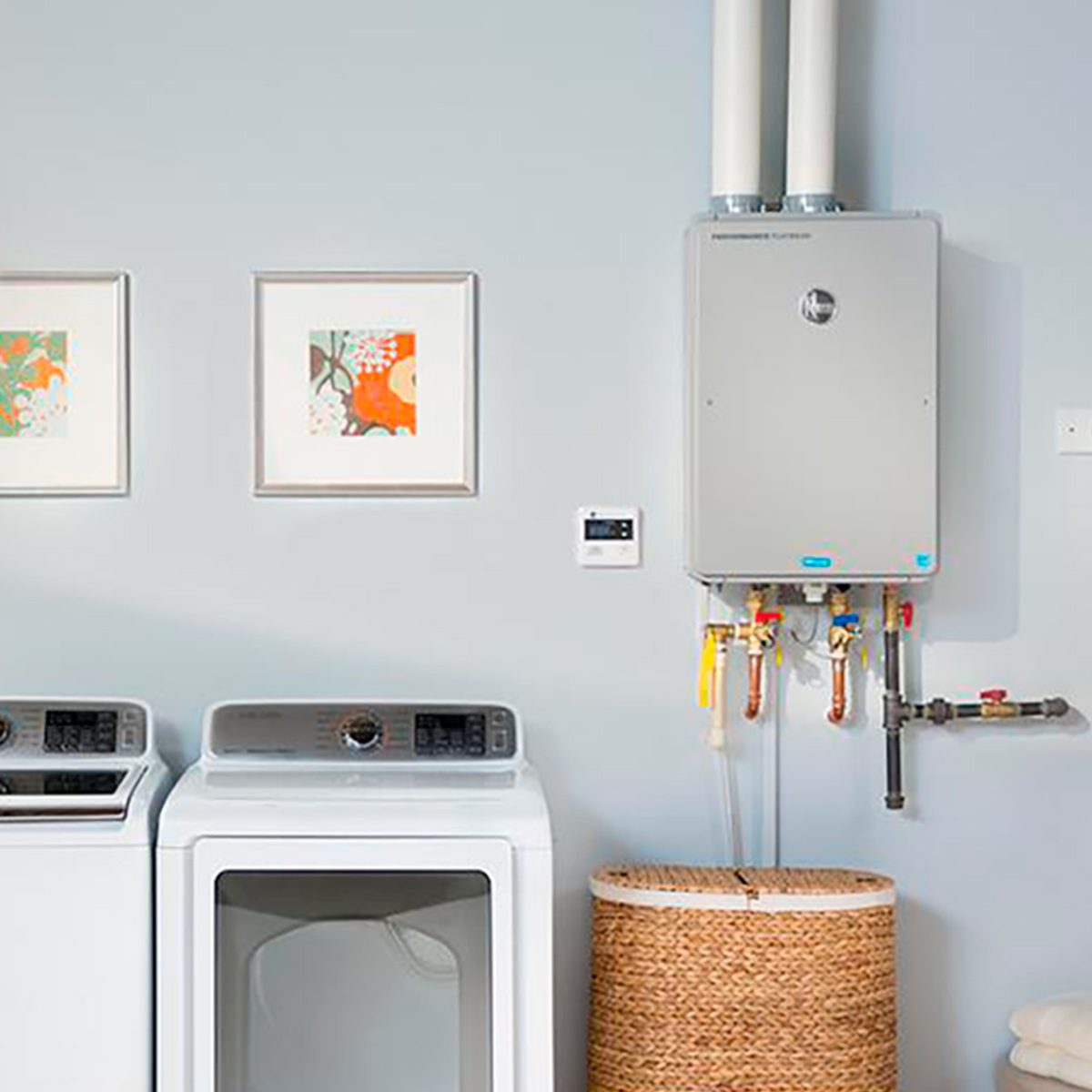
How Much Electricity Does A Tankless Water Heater Use?
Finally, heat pump water heaters are much bulkier than tankless water heaters. Where tankless water heaters look like rectangular boxes and can get installed on the wall, heat pump water heaters look more like traditional, tanked water heaters and take up a decent amount of space. They also require a minimum of 1,000 ambient feet to have enough.

Heat Pump Water Heater vs Tankless Water Heater [Explained]
Tankless water heaters and heat pumps offer energy efficiency and cost savings. Tankless water heaters are compact and ideal for smaller homes, but may have limitations with simultaneous use. Heat pumps utilize existing heat from the air, making them highly efficient, but they may not perform well in cold climates.
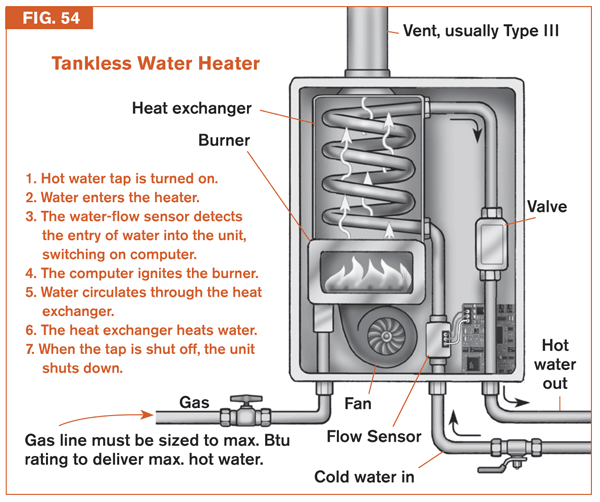
Storage vs. Tankless Water Heaters BuildingGreen
Tankless water heaters heat the water as soon as the tap is turned on. Tank water heaters heat the water in advance in a large storage tank. Tankless water heaters are more energy efficient, but tank water heaters are more economical and easier to install. Read on to learn about tankless vs. tank water heaters, their main differences, and which.
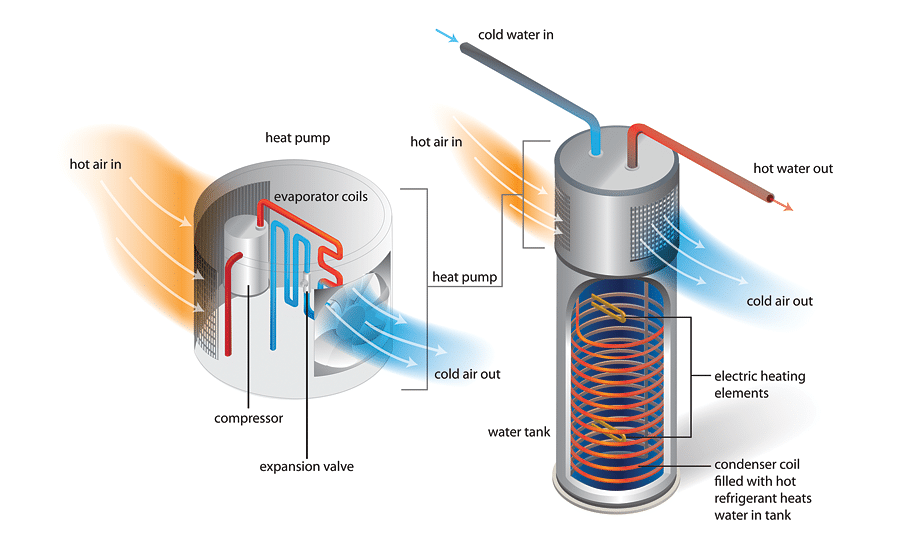
Heat Pump Water Heaters We Need to Get this Right Efficiency First California
Energy Efficiency. Heat Pumps are more energy-efficient than Tankless Heaters as they consume less electricity. Tankless Water Heaters must constantly heat water, even when no one uses it, which uses a lot of energy. Conversely, Heat Pumps only use power when heating water, so they are more efficient.
- Homes For Sale In Sherwood Nw Calgary
- Old City Design Apartments Porto
- Fromage Camembert Isigny Sainte Mere
- Houses For Sale Falkland Bc
- Rama Gaming House Mississauga Photos
- Sunset And Sunrise Times Toronto
- Therm A Rest Honcho Poncho
- Maison A Vendre A St Canut
- Stainless Steel Camping Cook Set
- 401 The West Mall Etobicoke On